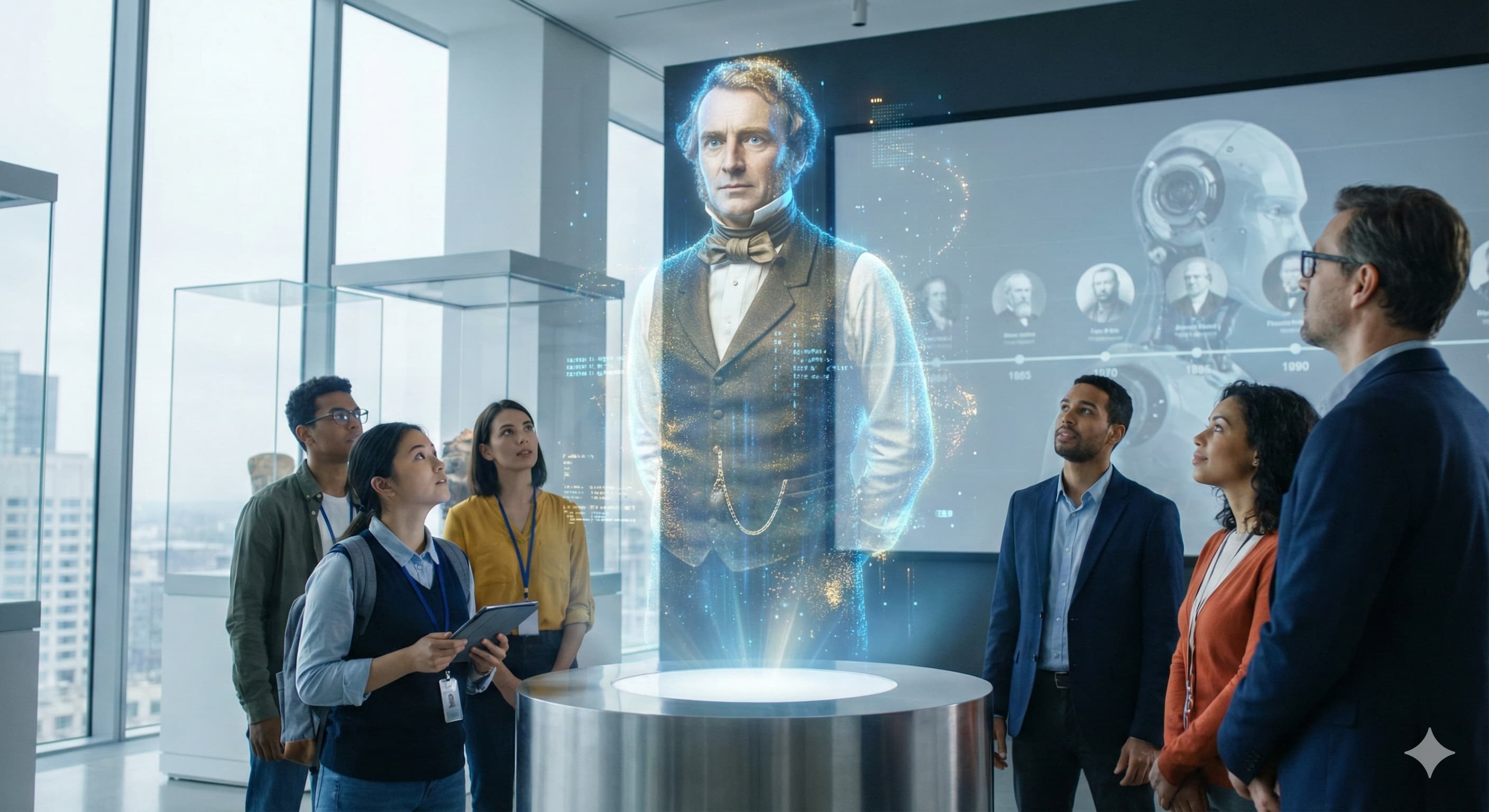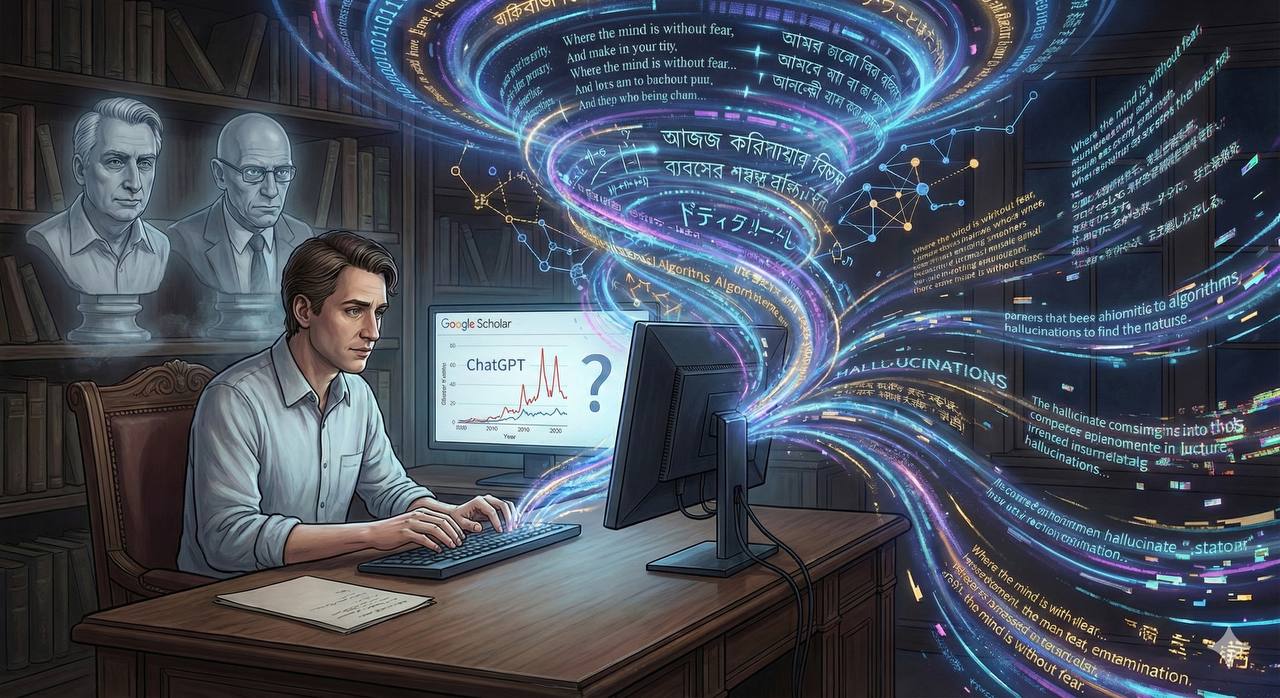The Future of History in the Age of AI
The role and potential of Generative AI in historical science
From the creation of agriculture to the internet, most are aware of the technological turning-points that have fundamentally shifted the direction of human history. The impact of these innovations is often profound, leaving society forever transformed.
Consider the internet – though it has existed for decades, the world now fundamentally operates on an internet infrastructure. Similarly, though generative AI has only been around for a few years, most would certainly agree that it will be counted among these historic inflection points.
The potential of generative AI is tremendous, with entire industries experiencing significant disruption. As a corporate professional, it has transformed my role, enabling me to concentrate on more complex, thought-intensive tasks. From simplifying intricate technologies to crafting precise emails, I have observed a 25% increase in my productivity through using ChatGPT!
Evolution of technology
In the realm of historical studies, both in teaching and research, the potential of generative AI is just as thrilling – the possibilities are limitless.
On the educational front, ChatGPT can make history more interactive than ever before. Students can use ChatGPT to synthesize research papers and distill complex ideas for easier understanding, as academic writing can be daunting for beginners. During my undergraduate days, I often had to read journal articles multiple times to grasp the essence of their arguments. History should be accessible to everyone, and academics should embrace the opportunity to broaden the reach of their research. Despite being a cliché, it's true that those who fail to learn from history are doomed to repeat it, which requires a sense of history in the psyche of an entire population.
On the research side, generative AI has the potential to revolutionize quantitative research, especially in eras prior to statistical data collection. For instance, my undergraduate honors thesis investigated the shift to capitalism in pre-industrial England through a quantitative lens, using court depositions and extracting verbs to quantify the work activities of women during this crucial economic transition.
A decade ago, long before the emergence of generative AI, I consider how this technology could have enhanced my thesis research. A major challenge was the difficulty in establishing the statistical significance of my data set. How could one determine if my sample was representative of the overall population when no census data was available? At that time, I relied on secondary sources where historians extrapolated from the earliest available censuses, adjusting for significant historical events like plagues, famines, and wars that would have impacted population figures.
Today, I imagine how generative AI could have transformed my approach by providing advanced modeling and predictive capabilities. This technology could have helped more accurately estimate population distributions, identify patterns in the historical data that were not immediately apparent, and potentially suggest new analytical perspectives based on linguistic and semantic trends extracted from the depositions. The use of generative AI would have offered a more robust framework for understanding the quantitative dimensions of historical transitions, like that to capitalism in England, enhancing the depth and reliability of my research conclusions.
Challenges and Considerations: Using AI in Historical Research
The future is here for historical research, but it is crucial to recognize that technological innovations often have unintended consequences. Understanding the limitations of generative AI is essential for historians. In many respects, our situation with generative AI is like that of early humans discovering fire — a powerful tool that requires careful and thoughtful handling. Therefore, a cautious approach is warranted.
Reflecting on the implications of AI, I think of Jacques Ellul (1912-1994), a famed French theologian and philosopher, and his insightful work, “The Humiliation of the Word.” Ellul was among the first to critically examine the role of technology in society, arguing that technology tends to perpetuate itself and impose its own logic and demands on human life.
I contend that "The Humiliation of the Word" is particularly relevant to the role of ChatGPT in historical research. Ellul explored how the preference for images over words affects our understanding of truth. Words, connected to logic, can convey abstract concepts, complexities, and nuances. Images, however, often present a simplified and more immediate reality, which can distort or oversimplify complex truths.
Adapting Pedagogy: Integrating ChatGPT into History Education
Ellul’s work is an excellent examination of the relationship between ChatGPT and the future of historical studies. Rather than focusing on how images can simplify the written word, one might argue that ChatGPT can oversimplify complex topics. This could lead to superficiality where quick judgments replace deeper understanding, and appearances are given more weight than substantive dialogue — the very process through which the field of history has evolved, particularly through historiographical debates.
Can the nuances of women’s roles in work throughout the pre-modern era truly be captured in a single ChatGPT-generated paragraph when hundreds of books have been written on the topic?
To protect the discipline, proactive steps by historians are paramount. At the undergraduate level, a shift towards in-class essays is necessary. Additionally, ChatGPT should be an integral part of interactive history lessons. As mentioned earlier, students can gain a solid introduction to analyzing the strengths and weaknesses of historical arguments.
At the graduate level, the richness of historiographical debates must remain a cornerstone of the degree. Exploring these debates through various lenses will ensure that we view history from a holistic perspective, reflecting the complexity of the human condition.
We stand on the brink of a Fourth Industrial Revolution, driven by big data. As we recognize the remarkable potential for human progress, we must proceed with calculated measures. Technology leads to societal transformation, and we must navigate this change sustainably and thoughtfully.
Bibliography
A. Johnson, B. Smith, and C. Liu, "Integrating ChatGPT into History Education: Opportunities and Challenges," Journal of Educational Technology & Society (2024)"









